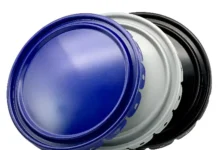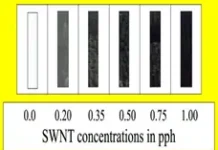YP Highlight #13: Dominique Porcincula
Originally hailing from Seattle, Washington, Dominique (Dom) Porcincula attended California Polytechnic State University, San Luis Obispo, where he obtained his bachelor’s degree in General Engineering, a master’s degree in Industrial Engineering and a master’s degree in Polymers and Coatings Science. While his early career started off in automated manufacturing and medical device design, he was inspired by the concept of influencing design through materials development, which led him to the world of polymer science and engineering. He currently is a staff scientist in the Materials Engineering Division at Lawrence Livermore National Laboratory, where he develops various UV-cure materials for additive manufacturing, including radiation-detecting materials (scintillators), shape memory polymers, liquid crystal elastomers and more. He is a principle investigator exploring resin-based approaches for fabrication of glass using volumetric additive manufacturing.
RTYP: When did you first learn about UV/EB as an industry and technology?
Long before I had started my journey into polymer science and engineering, I was helping my university’s Biomedical Engineering department prop up a 3D-printing service. It was here that I had my first experience with UV-cure resin as I helped set up an SLA printer and started helping print organ models and precise medical device parts. I became enamored with the concept of UV/EB technology as a rapidly curing material that could be formed into seemingly limitless geometries and started to think about the ways we could make custom materials. This inspired a lot of my graduate studies and eventually became the basis for my work at Lawrence Livermore National Lab.
RTYP: How could we encourage more young professionals to get involved in UV/EB technology?
It’s fairly easy to be inspired by the magic, utility and all-around coolness of UV/EB technology, but I think a lot of us don’t get exposure to it until graduate school or until we’ve entered industry. I think the best way to get more young professionals into the field is to start exposure earlier on in the undergraduate educational curriculum, whether that be industry tours, conferences, short courses, guest lectures or university-industry collaboration projects. Once students start graduating, they already will have some experience with the field and also will be familiar with the big names in the industry.
RTYP: What would your suggestions be for students or YPs who are just starting their professional careers?
First, network! The UV/EB field is full of a lot of great people who would be happy to talk about their work, chat about different ideas and innovations, or provide guidance and advice. Cold-emailing sometimes can feel a bit awkward, but I promise it’s not that bad. Second, lab time! If you’re a student just getting started or developing interest in UV/EB, I’d highly recommend any experience, whether it’s joining a research group, company or project group, that gets you hands-on time with materials. It’s a great opportunity to build technical experience as well as for mentorship and building community.
RTYP: Do you have anything else you want to share?
It’s a really fun and exciting time to be in the UV/EB space. There still is so much fundamental science that hasn’t been discovered, and the space also ripe is for innovation. In the realm of additive manufacturing, there’s a unique synergy between new hardware enabling new material sets that enable new application spaces – a lot of which has been the result of partnerships between academia, industry and national labs. If you are interested in learning more or joining in on the UV/EB party, feel free to reach out!
The RadTech YP Committee aims to help young professionals (YPs) grow in the use and development of UV and EB technology. We are a group dedicated to enhancing interactions between YPs and senior experts within RadTech. YPs are students and professionals early in their careers who utilize UV and EB technology in industry, government, or academia. If you have questions or comments or would like to get involved, please contact us via email (yp@radtech.org).







